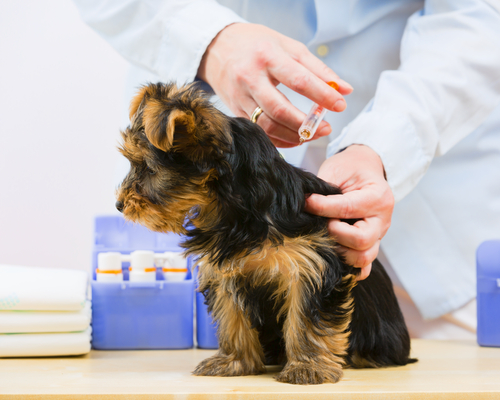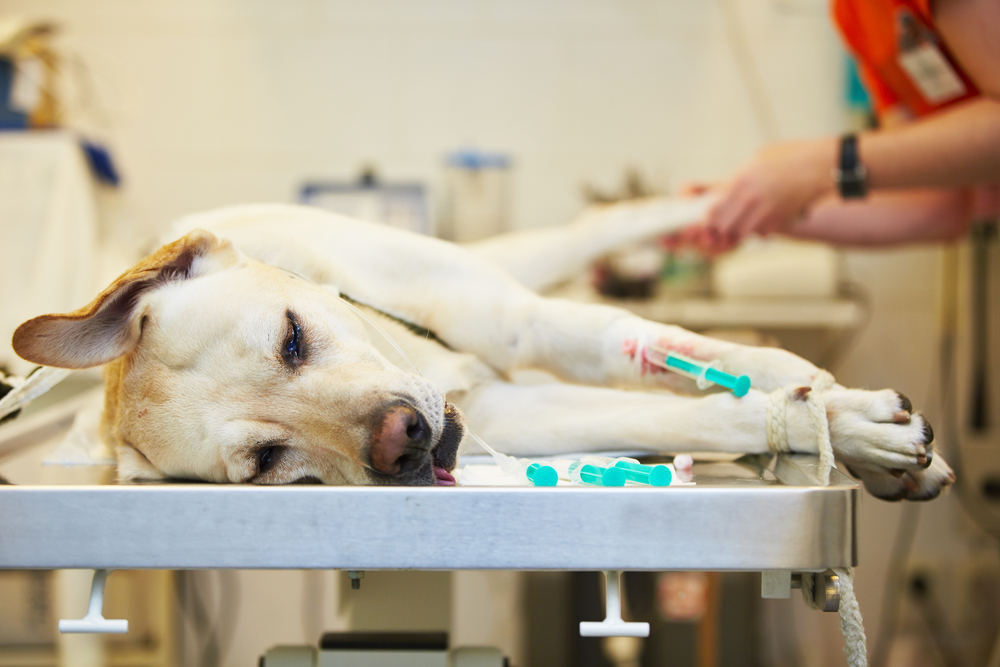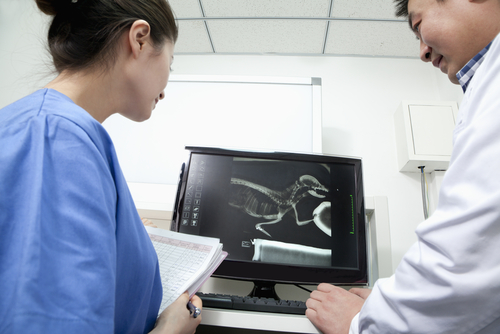It’s easy to think of all the questions you want to ask a vet – until you actually walk into the exam room. Then, for some reason, our minds’ fails us and we walk out having not asked one question.
Heidi Ganahl, CEO and Founder of Camp Bow Wow, the nation’s largest pet care franchise, has created a series of important questions to ask during a visit to the vet, so you won’t forget! Simply print this list out and take it with you.
#1 – What is a healthy weight for my dog?
It is important to understand what the healthy weight would be for your dog. Keeping dogs at an optimal weight is important for ensuring they live a long, healthy life.

Click page 2 below for the next question!
#2 – What are healthy foods for my dog?
There are many dog food brands, protein types and variations in formulas, so talk to your veterinarian about what is be best for your dog. Young dogs may need a puppy formula, while small dogs may need a small breed food and active dogs might need higher protein.

#3 – How much food should I feed my dog?
Based on the type of food your vet recommends, you will want to discuss what is the appropriate feeding amount and frequency for your dog.
#4 – What vaccinations should I get for my dog?
The age of your dog and the activities you do with them will influence what vaccinations you should get for your dog. It is important for dogs that go to dog daycare or dog parks to get a Bordetella vaccination. Vets will go over each vaccination available, what they are for and their give you a recommendation.
#5 – How much exercise should my dog get? What type of exercise?
Different dogs need different amounts, and types, of exercise and certain breeds may require more than others. Other dogs need a lot of mental exercise, while younger dogs need to be careful of the type of exercise they participate in. Your veterinarian will provide recommendations that are specific to you and your dog.

#6 – Where do I go for an emergency?
Some vets have 24-hour emergency service, but if yours does not, get the contact information of where you should go if your dog has an emergency. Make sure to know your veterinarian’s hours of operations so if your dog experiences a problem outside of their normal business hours, you know who to contact.
#7 – What technology does your facility have and what types of issues are you able to handle?
You want to understand what capabilities the facility you take your dog to has. If your dog needs bloodwork, do they send it out to a lab or do they do it in-house? Do they have x-ray machines on-site? Do certain doctors in their facility specialize in certain surgeries, or do the veterinarians at the clinic perform all surgeries?
#8 – Will you be my vet all of the time?
Many veterinary practices have multiple doctors on staff. Ask your veterinarian how their practice works and if they will always be your vet, or if other doctors will see your dog.





 Toledo, United States.
Toledo, United States.